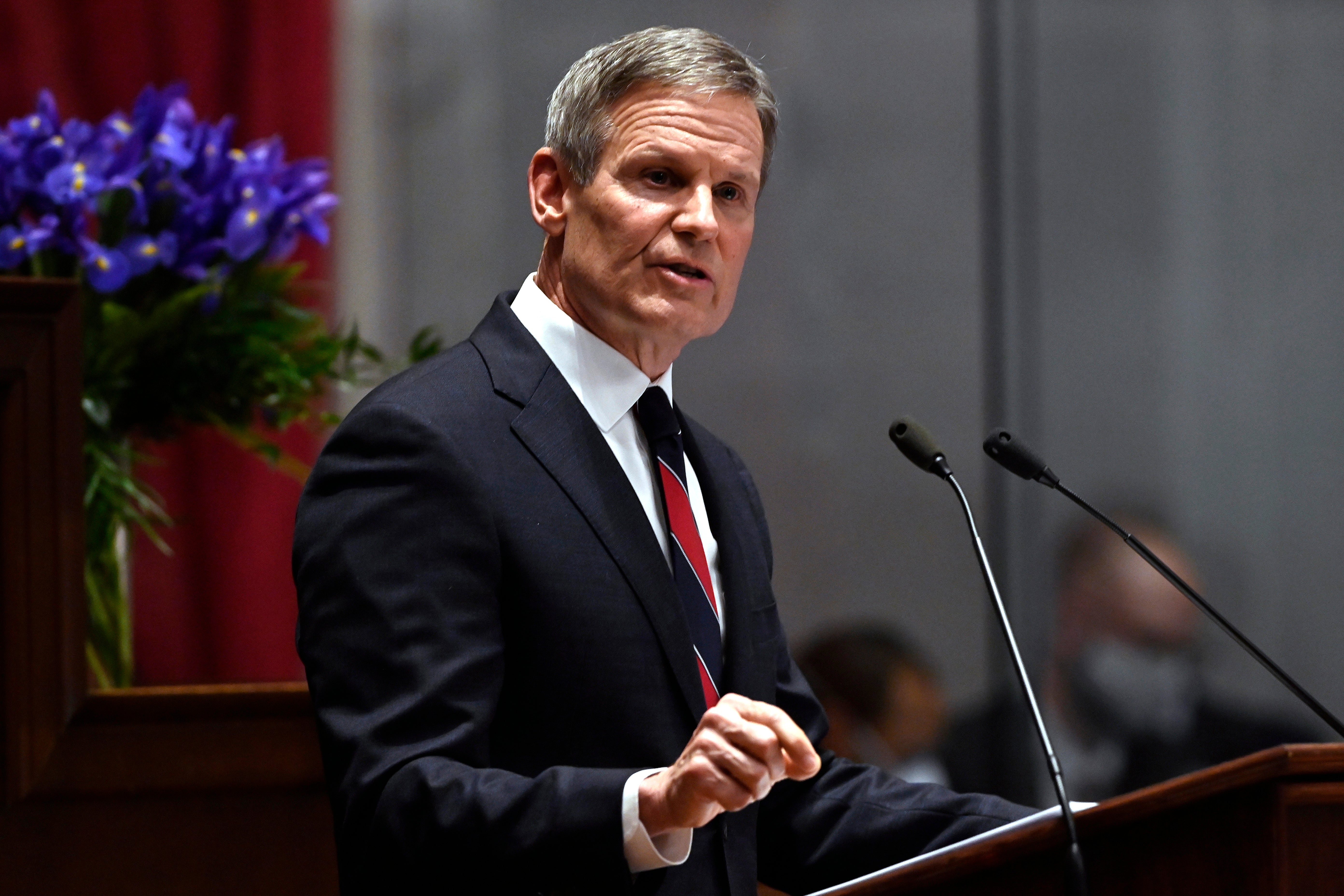Tennessee governor signs collegiate transgender athlete ban
Republican Gov. Bill Lee has signed off on legislation banning transgender athletes from participating in female college sports

Republican Gov. Bill Lee on Friday signed off on legislation banning transgender athletes from participating in female college sports.
Last year, no other state enacted more laws targeting transgender people than Tennessee, as GOP lawmakers consistently dismissed concerns that they discriminate against an already at-risk population. Those measures included banning transgender athletes from playing girls public high or middle school sports.
This year, lawmakers returned to the Nashville-based Statehouse looking to expand that ban to colleges and universities. The proposal easily cleared the Republican-controlled Statehouse, where GOP members also approved a separate bill that will add harsh penalties against public K-12 schools that allow transgender athletes to participate in girls’ sports.
Republicans this year also pushed to let teachers and school districts use the pronoun that a transgender student does not prefer, but that effort eventually got spiked during the last days of the legislative session.
While Lee did not issue a comment explaining why he signed the legislation, the Republican has previously declared that allowing transgender athletes to participate in female sports would “destroy women’s sports.”
The bill will go into effect July 1.
According to the Human Rights Campaign, Tennessee is one of eight states that have passed anti-transgender sports bills. Those include Arizona, Georgia, Iowa, Kentucky, Oklahoma, South Dakota and Utah.
Republican Gov. Spencer Cox initially vetoed Utah's transgender youth athlete ban, which drew national attention with his poignant argument that such laws target vulnerable transgender kids already at high suicide risk. However, GOP lawmakers quickly overrode the veto.
Meanwhile, Indiana's Republican Gov. Eric Holcomb also vetoed a similar ban in March, but lawmakers are expected to override it later this month.
“2022 is on track to surpass a record number of anti-transgender bills filed in state legislatures this year, in large part because of the efforts by Gov. Bill Lee and the Tennessee lawmakers who, law after law, year after year, continue their legislative assault on the LGBTQ+ community, particularly transgender people,” said Cathryn Oakley, HRC's state legislative director, in statement.
Scrutiny over transgender athletes has come to the forefront once again after University of Pennsylvania swimmer Lia Thomas started smashing records this year. She was on the men’s team her first three years, but she is competing for the women this season after transitioning.
The NCAA adopted a sport-by-sport approach in January for transgender athletes, but Republicans in a handful of states have decided to push for strict bans. Supporters argue such prohibitions are needed to ensure a level playing field.
Bookmark popover
Removed from bookmarks